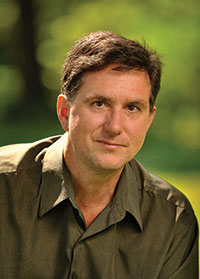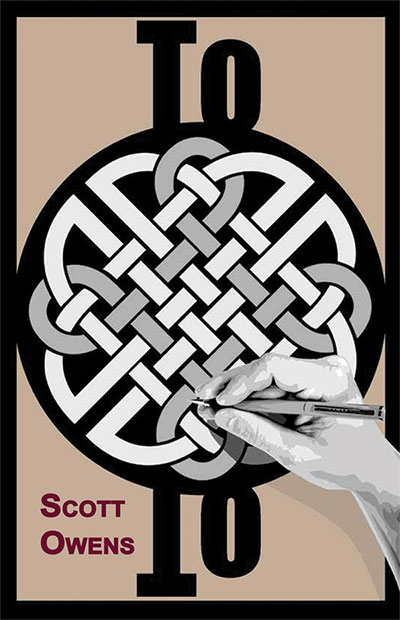poems by
Scott Owens
ISBN: 978-1-59948-505-8, 102 pages, cover price: $15
($10 if order from the MSR Online Bookstore)
$15.00 Original price was: $15.00.$10.00Current price is: $10.00.
In stock
ISBN: 978-1-59948-505-8, 102 pages, cover price: $15
($10 if order from the MSR Online Bookstore)
 Scott Owens is originally from Greenwood, SC. He holds degrees from Ohio University, UNC Charlotte, and UNC Greensboro and currently lives in Hickory, NC, where he teaches at Catawba Valley Community College, edits Wild Goose Poetry Review and 234, writes for the Outlook Newspaper, and serves as vice-president of the NC Poetry Society. His previous 10 books have received awards from the Academy of American Poets, the Pushcart Prize Anthology, the Next Generation/Indie Lit Awards, the NC Writers Network, the NC Poetry Society, and the Poetry Society of SC.
Scott Owens is originally from Greenwood, SC. He holds degrees from Ohio University, UNC Charlotte, and UNC Greensboro and currently lives in Hickory, NC, where he teaches at Catawba Valley Community College, edits Wild Goose Poetry Review and 234, writes for the Outlook Newspaper, and serves as vice-president of the NC Poetry Society. His previous 10 books have received awards from the Academy of American Poets, the Pushcart Prize Anthology, the Next Generation/Indie Lit Awards, the NC Writers Network, the NC Poetry Society, and the Poetry Society of SC.
In TO, Scott Owens illustrates the joy, frustration, and oxymoronic nature of writing poetry. Only someone who is deeply committed to and believes in the art and craft of poetry could compile such a compelling collection of ars poetica. In fact, the titles alone compel: ‘The Sun Was Like an Oxymoron,’ ‘Arse Poetica,’ ‘On the Recent Reports of the Death of Poetry,’ and so on. This is poetry for the smart reader, the common reader, the reader who’s not sure if poetry is his or her thing but is willing to give it a shot. In To, Owens promises to sway all comers. Once I started reading this collection, I couldn’t put it down until the very end. — Robert Lee Brewer, author of Solving the World’s Problems and editor of Poet’s Market
Scott Owens’s TO is a masterful collection of poems on the subject of poetry, such that poetry as a genre acts as the singular ordering device for this most fascinating and valuable contribution to our understandings of the genre. Owens’s poems are replete with insight, humor, wisdom, compassion, irony, honesty, and an unassailable knowledge; Owens is both an experienced and very talented poet, both sides everywhere on display throughout TO. Buy this book, read it, and let anyone borrow it; each reader will enjoy, learn, profit, and grow––poetry fan or not, whether twenty or four times twenty. –Ronald Moran
Poetry, Scott Owens assures us, owes nothing to anyone. This claim is well substantiated by the poems in TO, where Owens uses such classic elements as line and stanza, image and rhyme to heighten language in ways that can’t be ignored or denied. Given even half a chance, these poems will carry their readers from whimsy to grief, from despair to delight. They will take readers forward and take them back, from the simple human need to be about to the business of making words do what they must, and thus, in making art, to mean. –Phebe Davidson
for Fred Chappell
“Up, up, and away,” he said,
meaning the floor of our ceiling,
the ceiling of our floor, meaning,
if anything, everything
that boxes in, boxes out,
constricts, constrains, encloses, controls,
says, “No,” to the imagination’s
tongue screaming, “Here he comes
to save the day,” like a bird, like a plane,
like anyman with his hands out
before him, his red cape blowing,
unconcealing his bright, shining S.
Reading too much poetry,
you begin to think in poetry,
and everything sounds like poetry,
bad poetry, mostly,
the kind of poetry you think
is good, maybe, when you’re drunk
or haven’t slept in days.
Asking for the time,
someone says, “Approaching noon,”
and you think, Wow! What a great title:
“Approaching Noon.” What would it
be about, this poem called
“Approaching Noon”? The sun
turning up the heat a little,
the incessant whisper of siesta,
the cicadas singing louder,
the hunger of midday mouths,
or maybe a town called Noon
just off I-85 near the fleamarket
and the power station, along
another river named for another lost tribe,
a railroad town where every train arrives
on every track at noon and all the people
stop their doings to greet them,
the hard engines, the travelers,
the engineers who bring the world here
every day at noon, where one day
you could arrive maybe with Cathy
What’s-her-name from sixth grade,
the wild one, from Kentucky,
who met you for lunch every day at noon,
who spat on teachers and cursed
and threw things, who loved you
before you knew what love was,
who would calm down only after
they brought you from your room,
who purred and went soft in your arms,
who, you imagine, in a little self-blessing,
forgives you, having thought of her now,
for having forgotten her all this time.
So there was this squirrel-necked
four-eyed motherfucker who said I
shouldn’t use the word motherfucker
in a poem because it might offend
all the mothers who might not
to mention all the fuckers who
might not knowing any better
choose to read the poem and I
said yes but it expresses just
the sort of feeling I was feeling
towards the motherfucker in the poem
when I wrote the poem and he said yes
but certainly there are other
words that mean the same thing
that you could use and aren’t
you really just using the word
motherfucker just because it is
the word motherfucker and I said
yes and oh by the way
when I use the word yes
I use the word yes just because
it is the word yes, motherfucker.
The stuff of this poem is common as rain,
hanging clothes to dry, pulling weeds,
clipping nails in perfect moons,
a tractor going to rust, the smell
of manure on the fields in spring.
This poem wants to explore
the space between us,
save everything worth saving,
find its way into the pocket
of a girl gathering daylight.
This poem needs to be touched,
cuddled, soothed, likes rainy days
and bare shoulders, loves the tops
of leafless trees, believes
it has a right to everything.
This poem wants to lay its head
on your ample chest and listen
to your iambic breath.
This poem was just written today.
It has been waiting for you to finish it.
This poem will not redeem your childhood,
fix your marriage, pave the way to success,
vindicate anything. It will try
to make you think, feel, or do something.
It thinks it has something to say.
It wants you to listen.
This poem hopes to spontaneously combust
and ignite your passion for all the things
you never thought you deserved.
This poem lives in the eternal present tense.
This poem thinks it will live forever.

